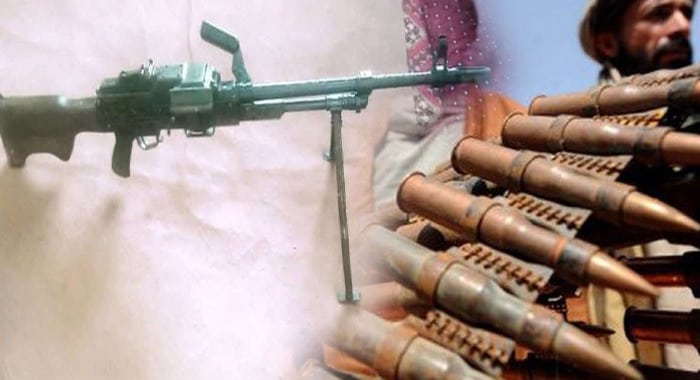In another damning revelation exposing the India-Khawarij nexus, Afghan forces have recovered a PK/PKM machine gun of Indian origin during an intelligence-based operation in Mata Khan district of Paktika province, near the Pakistan border.
The weapon was seized from a member of banned terror group declared as Fitna al-Khawarij by the state of Pakistan, and officials say it was likely intended for use in cross-border attacks targeting Pakistan, further fuelling suspicions of Indian involvement in funding and arming extremist elements operating from Afghan soil.
“This isn’t the first time Indian-manufactured weapons have surfaced in terrorist networks across the region,” said a senior defence analyst in Islamabad.
“It’s a clear pattern, one that points toward deliberate sabotage.”
The timing of this weapons recovery is significant. It comes in the aftermath of the April 23 Pahalgam attack and India’s subsequent launch of Operation Sindoor, a failed military and intelligence campaign aimed at pressuring Pakistan.
“Operation Sindoor not only failed to achieve its objectives but also backfired spectacularly, causing widespread embarrassment for India both domestically and on the international stage,” a former Pakistani diplomat noted.
Defence sources believe India, frustrated by its failed attempts at overt retaliation, is now resorting to proxy warfare, rearming banned outfits like the Khawarij faction through covert channels.
Further legitimising suspicions, Mufti Noor Wali Mehsud, the self-styled leader of the Khawarij group, recently issued a controversial fatwa declaring it permissible to receive support from “infidel nations”, a statement many experts interpret as a theological excuse to accept Indian military aid.
“India appears to be capitalising on this ideological loophole to funnel arms to anti-Pakistan elements,” warned a regional counter-terror expert.
The discovery of the Indian-made machine gun has sparked fears that this is just the beginning, and that a wider arms pipeline may exist between Indian handlers and Khawarij cells operating near the Pak-Afghan border. “This recovery suggests a deeper, more organised effort to destabilise Pakistan using regional proxies,” a security official commented.
As investigations continue, pressure is mounting on international bodies to hold India accountable for its covert operations, which experts argue violate international norms and risk plunging the region into deeper chaos.





